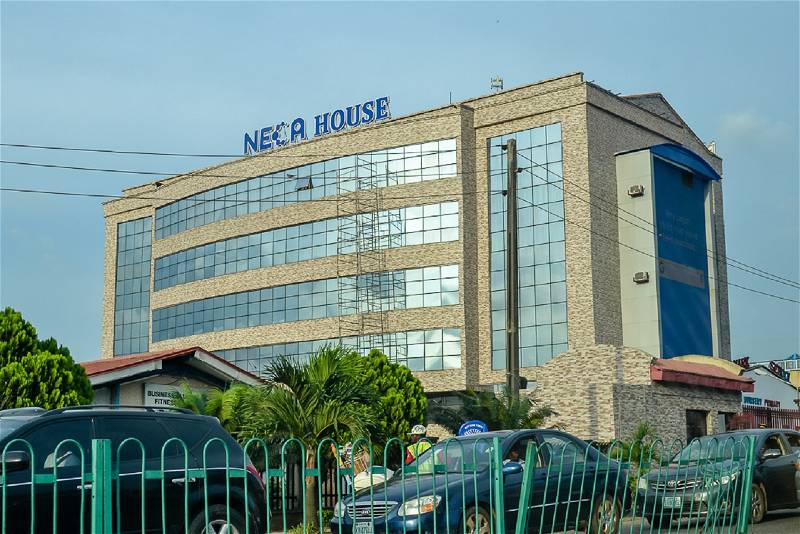The Nigeria Employers’ Consultative Association (NECA) has kicked against the new Expatriate Employment Levy (EEL) recently introduced by the Nigerian government, warning that it will discourage investment in the country.
The group made this known in a statement signed by the Director-General of NECA, Adewale-Smatt Oyerinde.
Join our WhatsApp ChannelThe federal government through the Ministry of Interior had last week Wednesday launched the EEL handbook containing the new policy provisions that imposed taxes on companies employing foreign expatriates in the country. The government claimed that the new policy is aimed at balancing economic growth and workforce development by ensuring equitable contributions from expatriate employment.
However, NECA said the policy would if implemented, frustrate the Federal Government’s ongoing fiscal and monetary reforms.
“It will also serve as a disincentive to Foreign Direct Investment among many other unintended negative consequences,” Oyerinde stated.
“The levy of between $10,000 to $15,000 on employers that employ expatriates when Nigeria is actively seeking FDI is not only exploitative and extortionist but also a contradiction that cannot be explained.”
READ ALSO: Expatriate Employment Levy Policy May Have Devastating Effect On Diaspora Nigerians – CCPE Warns
“While we support the Federal Government’s objective of developing the local workforce, we have been at the forefront of promoting skills transfer, technical skills development, and employment generation.
“However, the recently launched initiative of the Ministry of Interior has the potential to create more fundamental economic and socio-labour distortions.“
“The imposition of US$15,000 and US$10,000 on organisations that employ expatriates at a time when businesses are shutting down and leaving the country in droves is worrisome. Recent results of many businesses have shown massive losses, a situation that could potentially increase the level of unemployment with dire socio-economic consequences.”
The NECA DG also raised concerns about the legality and appropriateness of the levy saying: “We are concerned at the legality and appropriateness of the Expatriate Employment Levy as well as its effect on the economy. The provisions of a Handbook can never override clear provisions of extant laws in Nigeria, especially the 1999 Constitution of the Federal Republic of Nigeria, Immigration Act, and the Local Content Act among others.”
He further contended that the government cannot suddenly impose a tax or levy without appropriate legislation that provides necessary conditions for to be implemented.
“For instance, Section 59 of the Nigerian Constitution requires that any imposition of tax, duty, fee, or levy must be backed by an Act of the National Assembly. Levies that are imposed without complying with the provisions of section 59 of the Constitution offends the Constitution and are illegal.”
“Existing legislations, such as the Local Content Act and Immigration Act have already addressed objectives like those of the EEL Handbook – thus, covering the field. Therefore, the introduction of additional levies is an unnecessary duplication and could impede the ease of doing business in Nigeria.
“The levy, if implemented, will not only distort, and frustrate the ongoing efforts at clear reform of the Fiscal and Monetary space but also contradicts and render ineffective the President’s ongoing quest for Foreign Direct Investment. Furthermore, a reciprocal implementation of the same policy by other countries will have dire consequences on the careers and progress of Nigerians who are expatriates in other nations.”
He advised that instead of enacting a new policy, the government should work toward strengthening the regulatory bodies already in place to oversee the hiring of foreign expatriates. This, he argued, will ensure that the laws already in place are implemented by a more accountable and responsive regulatory system.
Oyerinde also emphasized the need to prioritize policies that make doing business easier in order to draw in both domestic and foreign investors, as well as to embrace fiscal incentives to boost investment attractiveness and maintain business stability.
While acknowledging the government’s objectives, Oyerinde emphasized the necessity for policies that promote a favorable investment climate without placing undue pressure on companies. Working together, the public and private sectors can achieve equitable outcomes that advance economic interests and long-term corporate expansion.
The NECA DG called for joint efforts between the public and commercial sectors to seek alternate sources of funding and encourage the production of wealth via communication and stakeholder involvement.
Victor Ezeja is a passionate journalist with seven years of experience writing on economy, politics and energy. He holds a Master's degree in Mass Communication.




















Follow Us